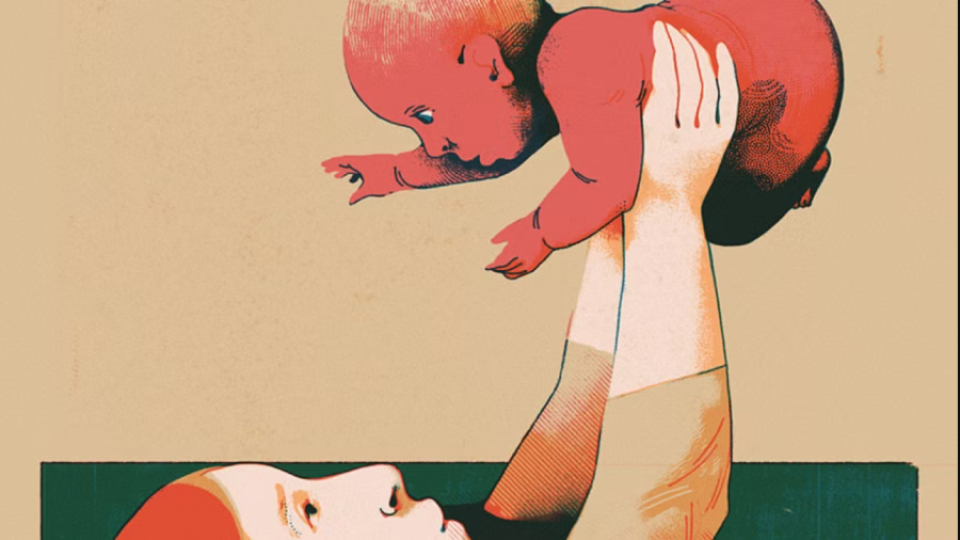May 16, 2023
DHAKA – I am emotional as I write this as I don’t want to sound ungrateful. I am a mother of two beautiful boys. I am thankful for the family I have, who supported me and took care of me through thick and thin in my motherhood journey, but it hasn’t always been rainbows and sunshine, like they show in the movies.
My first birth was the most traumatic experience of my life – something I still find hard to talk about. That feeling of trauma mixed with overwhelming gratitude of having a healthy baby in my arms put me through a rollercoaster of emotions. Regardless of how labour and delivery unfold, whether with ease and as planned or requiring emergency intervention, the postpartum period is often a different story.
Bruised and tired from the process of giving birth, I thought things would be fine once I got home. Little did I know about postpartum depression (PPD).
Owing to my reputation as a self-sufficient, independent girl-child growing up in Bangladesh, I thought PPD was also something I could tackle alone. But I also felt guilty and suffocated for failing to communicate with my loved ones. I was angry and I had nowhere to channel it. Some days, I did not have the will or desire to even talk to my newborn – who I knew needed me desperately – and my partner started to feel like a stranger. I cried endlessly. When the baby cried, I would sometimes beg my mother to take him away from me. I felt touched out and was terrified of all my feelings.
I also realised that social media was proving to be a landmine, full of triggers. I started comparing myself to the picture perfect insta-mum. But for me, even combing my hair was a challenge. I believed if I was put off by my own image, surely my husband found me unattractive too. While I battled these inner demons, the world kept demanding for me to raise a stellar child, be a selfless mother, be all that my previous generations were and more. I broke down steadily until there was no more to break, and that is when I started sharing my thoughts, unfiltered, for the world to consume. It felt cathartic, not holding everything in any longer.
Soon, other mums started sharing their stories. For many new mothers, the stress of caring for a newborn coupled with hormonal changes after childbirth, a possible history of depression or anxiety, and a general lack of social support can lead to PPD. As many as one in five women struggles with this serious mental health issue. If the number is so high, one must assume that the tools for recovery would be easily available, right?
That is what I thought, and while I was fumbling to find solutions, life threw another curveball at us. I became pregnant with our second child, and just 12 days after giving birth, my husband flew to Canada, leaving (now) all three of us behind. Even though my parents and in-laws helped me with my children, without my partner’s presence, I felt as though I was in uncharted territory.
For the second time in the span of a few years, I again felt exposed, vulnerable, and was at the receiving end of mixed messages: “You CHOSE to have a baby, many people can’t!”; “You have everything you ever wanted! Why aren’t you happy?”; “SNAP OUT OF IT!” Those who supported me the first time around were also “done” with my depression. I now felt guilty asking for help again. I yearned to be the person I was before. The anger was back and the little recovery I had made after the first birth was all but gone.
And then we moved to Canada. This time, it was my husband who became a shining light at the end of the dark tunnel. He helped me through my meltdowns, bad days and took over all responsibilities of raising the children. He made sure our house was in a liveable condition and filled my days with love and rest. I felt heard, seen, well-rested, and respected again.
I experienced PPD with both pregnancies, albeit in varying degrees and dimensions. But in both cases, I had to express those feelings to get help. I cannot, for the life of me, say that I have recovered. But there is hope now – that, too, feels like a big step forward.
PPD can take away from motherhood, from our quality of life, and turn us into a shell of our former selves. Many of us do not know what it is; those that do don’t know where to seek help. Therapy can be helpful and is often necessary for PPD. Online therapy can be a convenient way to get the help you need and is available both in Bangladesh and abroad.
I know that there are many new mothers who feel lost. I urge you to try and give a voice to that noise inside your head. I am no expert, but as I’ve found out, staying silent does not help.


